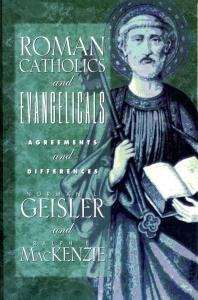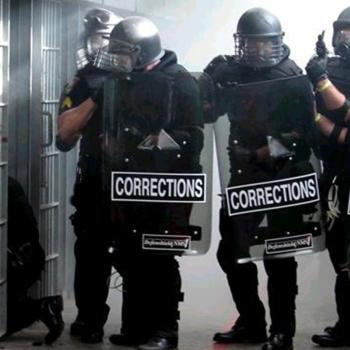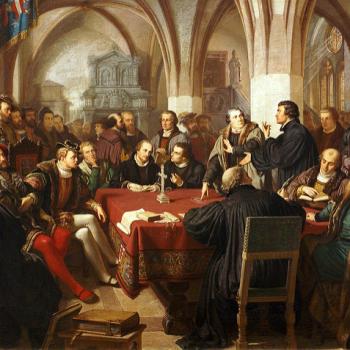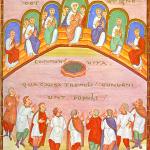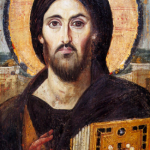[abridged version of a post originally from 2 July 2008]
“Please Hit ‘Subscribe’”! If you have received benefit from this or any of my other 4,600+ articles, please follow this blog by signing up (with your email address) on the sidebar to the right (you may have to scroll down a bit), above where there is an icon bar, “Sign Me Up!”: to receive notice when I post a new blog article. This is the equivalent of subscribing to a YouTube channel. Please also consider following me on Twitter / X and purchasing one or more of my 55 books. All of this helps me get more exposure, and (however little!) more income for my full-time apologetics work. Thanks so much and happy reading!
***
***
What books critical of Catholicism or ones that defend Protestant distinctives can be recommended in good conscience to Catholics or non-Catholics inquiring about Catholicism? The best single book critical of Catholicism: intelligent, stimulating, and fair (though ultimately, I think — as one would expect of a Catholic apologist! — able to be easily refuted) is eminent Protestant apologist Norman L. Geisler’s book:
Roman Catholics and Evangelicals: Agreements and Differences (co-author Ralph E. MacKenzie, 1995).
Geisler is an ecumenical Protestant rather than an anti-Catholic, which makes a huge difference in both tone and content, and enables him to fairly present the Catholic positions without distortion, so that real positions are critiqued, and not caricatures. Another book that looks similar to this one is by Protestant historian Mark Noll (a solid and fair scholar):
Is the Reformation Over?: An Evangelical Assessment of Contemporary Roman Catholicism by Mark A. Noll and Carolyn Nystrom (2008).
Catholic convert Fr. Dwight Longenecker has co-authored several “friendly dialogue” books with Protestants, that are very helpful in this regard:
Challenging Catholics: A Catholic Evangelical Dialogue by Dwight Longenecker and John Martin (2002).
Mary: A Catholic-Evangelical Debate by Dwight Longenecker and David Gustafson (2003).
Wy Do You Believe That?: A Protestant-Catholic Conversation by John Schwarz and Dwight Longenecker (2005).
Here are a few more fair-minded and intelligent treatments of Catholicism from Protestants:
A tale of two churches: Can Protestants & Catholics get together? by George Carey (1985).
Protestants and Catholics: A Guide to Understanding the Difference Among Christians by Peter Toon (1984).
The Shape of Sola Scriptura (2001) by Keith A. Mathison is a thoughtful treatment of that crucial subject from a Protestant, but marred by Mathison’s subtle version of anti-Catholicism. I’ve responded to several of his arguments: “Solo” Scriptura vs. Sola Scriptura: Reply to Keith Mathison [2012].
Another way to read about constructive Catholic-Protestant dialogue is to check out the many volumes of high-level ecumenical talks (notably the Lutheran-Catholic dialogues). These books, while primarily ecumenical, also give readers a sense of the real differences and how charitable men and women of good will on both sides work through the issues. These have the advantage of readers being able to examine both sides and to enjoy fruitful dialogue, for the purpose of better mutual understanding:
Lutherans and Catholics in Dialogue I-III by Paul & T. Austin Murphy (ed.) Empie (1970).
Lutherans and Catholics in Dialogue 2: One Baptism for the Remission of Sins by Murphy, T. Austin Empie Paul C. (1967).
Lutherans and Catholics in Dialogue I, 1967.
Lutherans and Catholics in Dialogue IV: Eucharist and Ministry, 1970.
Papal Primacy and the Universal Church (Lutherans and Catholics in Dialogue ; V) by Paul Empie (1974).
Justification by Faith: Lutherans and Catholics in Dialogue VII, 1985.
J. Francis Stafford, Harold C. Skillrud, and Daniel F. Martensen, Scripture and Tradition: Lutherans and Catholics in Dialogue IX (Lutherans and Catholics in Dialogue), 1995.
The Church as Koinonia of Salvation: It’s Structures and Ministries (Lutherans and Catholics in Dialogue, X) (Lutherans and Catholics in Dialogue) by Randall Lee and Jeffry Gros (2005).
Promoting Unity: Themes in Lutheran-Catholic Dialogue by H. George Anderson and James R. Crumley (1990).
Joint Declaration on the Doctrine of Justification, [Lutheran World Federation and Catholic Church], Grand Rapids, Michigan: Wm. B. Eerdmans Publishing Company, 2000.
Evangelicals and Catholics Together: Toward a Common Mission by Charles Colson and Richard John Neuhaus (1995).
Your Word Is Truth: A Project of Evangelicals and Catholics Together by Charles Colson and Richard John Neuhaus (2002).
A House United – Evangelicals and Catholics Together (Building Alliances Among Christians of All Confessions and Traditions) by Keith A. Fournier and William D. Watkins (1994).
Other books along these lines that I don’t know much about, but that look helpful:
Rereading Paul Together: Protestant and Catholic Perspectives on Justification by David E. Aune (2006).
Catholics and Evangelicals: Do They Share a Common Future? by Thomas P. Rausch (2000).
Evangelicals and Tradition: The Formative Influence of the Early Church (Evangelical Ressourcement: Ancient Sources for the Church’s Future) by D. H. Williams (2005).
Tradition, Scripture, and Interpretation: A Sourcebook of the Ancient Church (Evangelical Ressourcement: Ancient Sources for the Church’s Future) by D. H. Williams (2006).
A High View of Scripture? The Authority of the Bible and the Formation of the New Testament Canon (Evangelical Ressourcement: Ancient Sources for the Church’s Future) (2007) by Craig D. Allert.
I would never recommend that a person exclusively read anti-Catholic materials because in my experience they always (without exception) distort the Catholic positions they are trying to shoot down. In other words, they are (overall, or as a general rule) “refuting” a straw man and not the actual Catholic positions. I strongly urge inquirers to stay away from such anti-Catholic materials. The legitimate scholarly books I recommend above amply cover all of these same theological bases without the nonsense and distortions and flat-out lies of the relentless polemical anti-Catholic agenda.
*
Practical Matters: Perhaps some of my 4,600+ free online articles (the most comprehensive “one-stop” Catholic apologetics site) or fifty-five books have helped you (by God’s grace) to decide to become Catholic or to return to the Church, or better understand some doctrines and why we believe them.
Or you may believe my work is worthy to support for the purpose of apologetics and evangelism in general. If so, please seriously consider a much-needed financial contribution. I’m always in need of more funds: especially monthly support. “The laborer is worthy of his wages” (1 Tim 5:18, NKJV). 1 December 2021 was my 20th anniversary as a full-time Catholic apologist, and February 2022 marked the 25th anniversary of my blog.
PayPal donations are the easiest: just send to my email address: apologistdave@gmail.com. Here’s also a second page to get to PayPal. You’ll see the term “Catholic Used Book Service”, which is my old side-business. To learn about the different methods of contributing (including Zelle), see my page: About Catholic Apologist Dave Armstrong / Donation Information. Thanks a million from the bottom of my heart!
*
***
Photo credit: Norman Geisler’s book, Roman Catholics and Evangelicals: Agreements and Differences [cover from the Christianbook website]
Summary: Recommended books critical of Catholicism that aren’t anti-Catholic, and/or defend Protestant distinctives: especially for non-Catholics inquiring about Catholicism.


